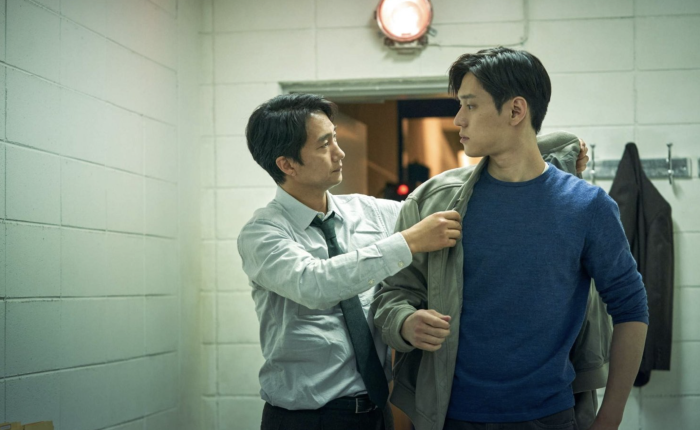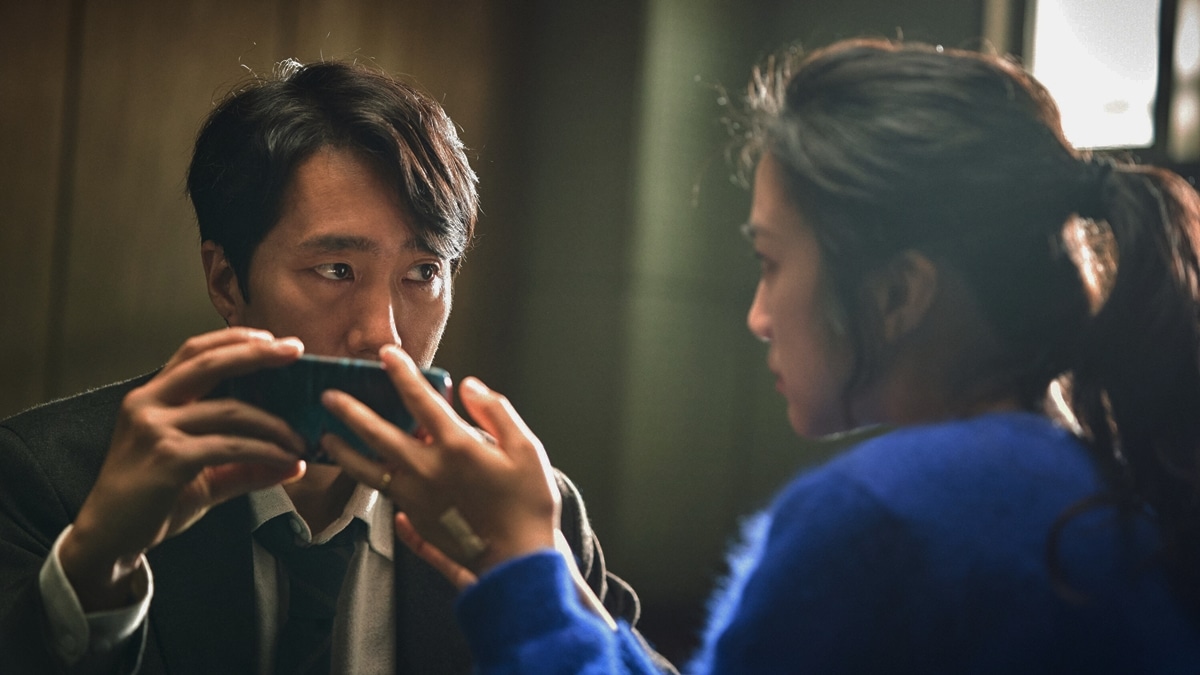First, it was Oscar Winning Parasite which brought South Korean cinema into many of our consciousnesses (mine included). Then, record-breaking and all-that-was-ever-talked-about-for-a-month Squid Game last year. This sensational Netflix show about a dark and dystopian killing fest in the guise of game show has already got a second season bagged…and apparently a real life game show spin off?
Park Chan-Wook’s Decision to Leave follows on from the West’s fairly recent realisation that South Korea’s Film and TV makers are not to be messed with: like their other offerings, this film provides a fresh take on Hollywood’s often tired and repetitive formulaic narrative structures, and the predictable, tried and tested cinematography styles – usually involving a limited set of shot types that a film student could probably label for you (not that you would want them to).
With significantly less violence than the likes of Squid Game, and less strangeness than Parasite director Bong Joon-ho’s 2017 Okja (another worth-a-watch critique on the meat industry through the story of a unique relationship between a young girl and her beloved genetically modified “Superpig”), Decision to Leave is more a romance than anything else, but, it bears little resemblance to the churned-out genre we’ve come to know very well from Hollywood.
Dense with narrative entanglement and criminal intrigue, the story focuses on its two main protagonists, detective insomniac Hae-Jun, in a slightly lifeless marriage, and, wife of murdered mountain climber Seo-Rae (who also, quite fittingly, happens to be the prime suspect in the investigation).
The film has received rave reviews and critical acclaim, with Chan-Wook even winning Best Director at the Cannes Film Festival – it’s honestly not hard to see why. From the cinematography alone, it is obvious that there is someone behind the camera who knows exactly what they are doing. I can’t quite put into words the level of sharpness, breadth, and perfection of every shot – where nothing important is missed, and nothing unnecessary is kept in frame. It is this level of brutal efficiency that alone provides a viewing experience which is, aesthetically, a welcome break from the CGI-packed murky over-colour-graded messiness of many blockbusters today.

There is also sheer creative ingenuity from Chan-Wook and his team, where there is seemingly an innate understanding that camerawork plays just as much a role in storytelling as actors, music, scriptwriting, and everything else. The camera is a character in every film, but in most films, it is under-utilized. Not so with this film though, where we have the joy of seeing shots from the perspective of a dead body, ants crawling right over our eyes, and also later (no spoilers), a strangely beautiful view of the sea as it gradually trickles its way into a sand-dug grave from where we as the audience, are looking up.
Another fairly remarkable feat this film achieves is its characters’ frequent use of phones and tech, something that still to this day, many filmmakers are either too afraid to go near, or still somehow, incredibly awkward and, I think, often cringey in their filming of. Chan-Wook even has the confidence to include and linger on filming one character texting for a good few minutes, or rather, trying to text, as the person on the other end keeps on sending messages that answer his pre-typed-out replies. It is an entertaining exchange and a delightful reminder that it is possible for characters in film to use technology like normal people. Here, it is fluid and feels natural to watch.
Through care for detail, clarity, strong storytelling and intelligence behind the camera, Chan-Wook creates a sense of enormity and awe which, I think, is the reason we all bother to go to the cinema these days. This stripping it down to fundamentals is something many in Hollywood could do with taking note of.
Picturehouse Student Membership
Thanks to Picturehouse City Screen York for making this review possible.
With Picturehouse’s Student Membership you can get priority booking, two free tickets and 25% off food, snacks and drinks when you get a £20 yearly membership at Picturehouse CityScreen York.
Free tickets will also be available for all Discover and ReDiscover screenings every week until January 3rd. Discover and ReDiscover give you the chance to expand your horizons by showing films outside the week’s big releases, from both the past and present.
